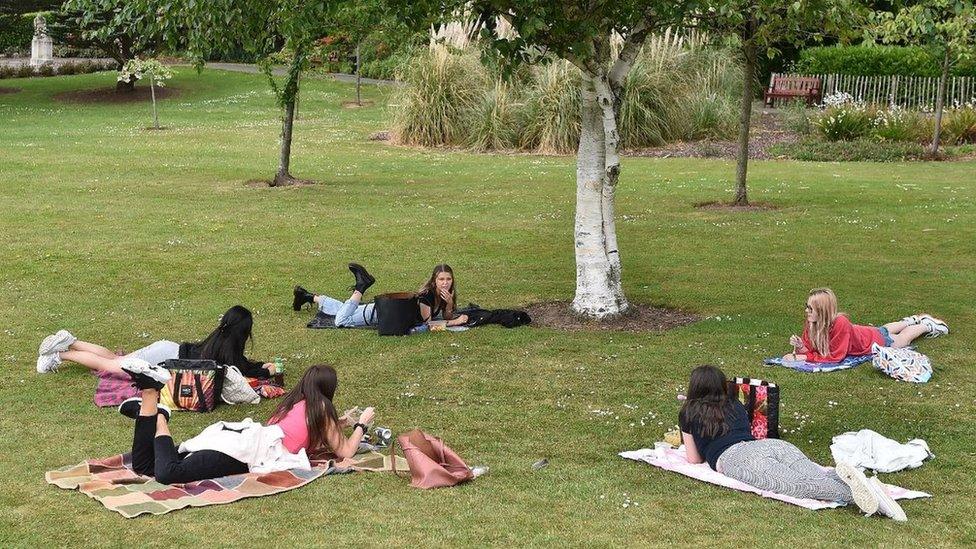Coronavirus: Drink-only pubs set to reopen next week
- Published
- comments
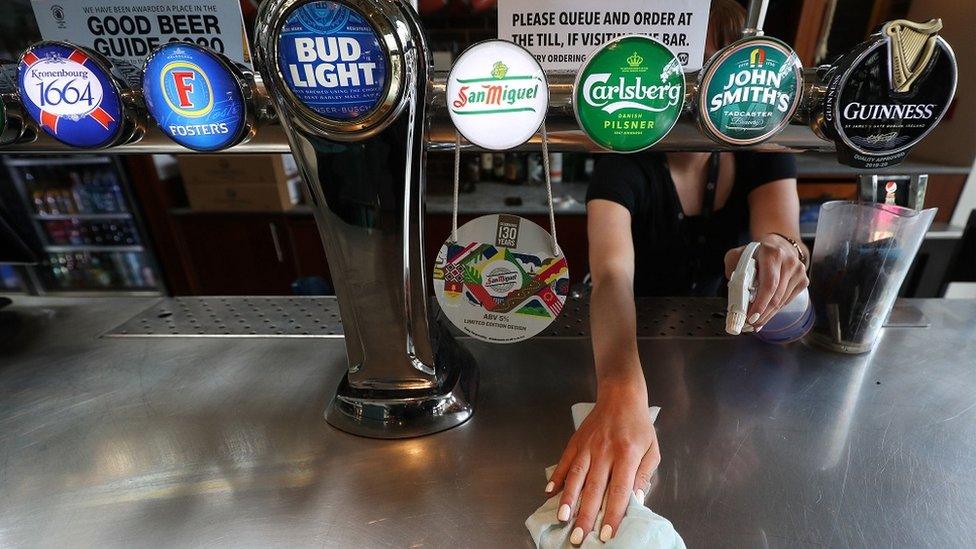
Pubs which only serve drink have not been allowed to reopen in Northern Ireland
Drink-only pubs in Northern Ireland are set to be allowed to open from Wednesday 23 September.
But local restrictions are to be imposed on people living in the postcode BT60, which covers parts of County Armagh, from Friday.
They will not be allowed to visit other people inside their homes or have visitors in - with a few exceptions.
The health minister said restrictions take effect from 17:00 BST on Friday.
Robin Swann announced the plan after Thursday's executive meeting.
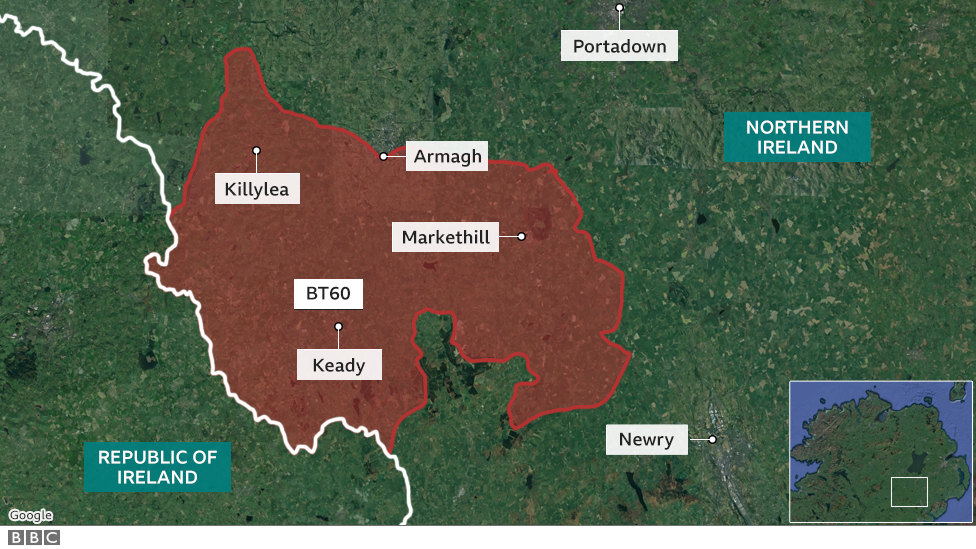
He said the BT60 postcode was "significantly above" the threshold for imposing localised restrictions.
BT60 covers parts of County Armagh, which includes part of Armagh City, the towns of Keady and Markethill, stretching from the Middletown and Tynan on the Monaghan and Tyrone border to Mount Norris and Whitecross, near Newry.
As well as the restrictions on indoor visits, no more than six people from two households will be allowed to gather in a private garden.
The restrictions already apply to the greater Belfast area, Ballymena, BT29, BT28 and BT43
Drink-only pubs
The news comes after the executive made the decision that drink-only pubs can reopen from Wednesday.
The hospitality sector had been given an indicative reopening date of Monday 21 September.
But the date has been moved back by two days to allow regulations around enforcement of the industry to be drawn up.
The reopening date had already been pushed back twice by executive ministers due to concerns about the virus.
About 600 pubs in Northern Ireland that do not serve food were awaiting the green light to open.
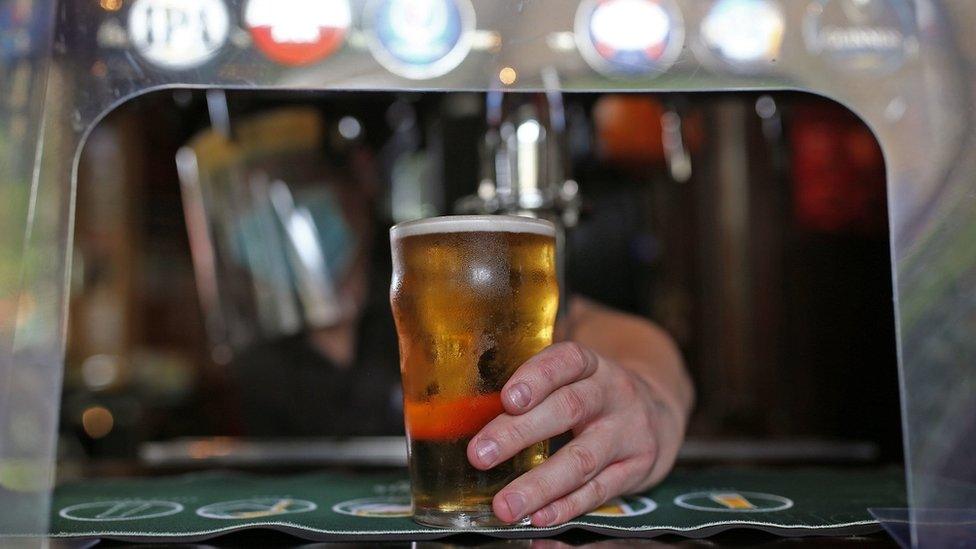
At present, drink-only pubs can only serve customers outdoors.
Last week, representatives from the sector met executive ministers to call for regulations to be put in place.
The executive has now agreed that the mandatory requirements for pubs to open will include:
Table service only - no standing and no bar service
Dancing will be banned in hospitality venues
A maximum of six people from any number of households can be seated at a table. Children under 12 will not be included in the total
More than six people will be permitted if they all belong to a single household
The venue will be required to collect customer details to assist with contact tracing
Face coverings should be worn to enter and leave the venue and for movement inside. They are not required once seated
The executive said beer bikes will not be permitted to operate.
Colin Neill, chief executive of Hospitality Ulster, said the decision to allow drink-only pubs to open would "hopefully reassure those who were concerned for their future".
He said he did not "underestimate the scale of the challenges ahead".
"We have provided detailed guidance in this respect and will continue to engage with the NI Executive and the statutory bodies to ensure compliance of the new regulations right across the industry.
"Nobody should be in any doubt that the hospitality sector locally is taking Covid-19 seriously."
In the Republic of Ireland, drink-only pubs are due to reopen on Monday with the exception of Dublin, which remains under tighter restrictions due to a rise in cases.
Local restrictions confusion
In a written statement to the assembly outlining the decision to impose restrictions in BT60 on Thursday, the health minister confirmed that the new regulations giving the local restrictions legal force also apply to the greater Belfast area.
There was confusion on Wednesday after it emerged that parts of Lisburn and Castlereagh Council in greater Belfast would be included in the restricted zones, despite initial communication from the executive and Department of Health saying it would only apply to Belfast City Council.
Mr Swann said the extension to parts of Dundonald and Carryduff "reflect the population flows and public transport linkages and Belfast identity of these specific districts".
"This was always going to be a complex and fast-moving situation and I will make no apology for seeking to do the right thing," he said.
"There are lessons to be learned going forward, including on the need for engagement with the public and stakeholders."
The health minister said the regulations were "not confusing and can make an important contribution to keeping people safe".
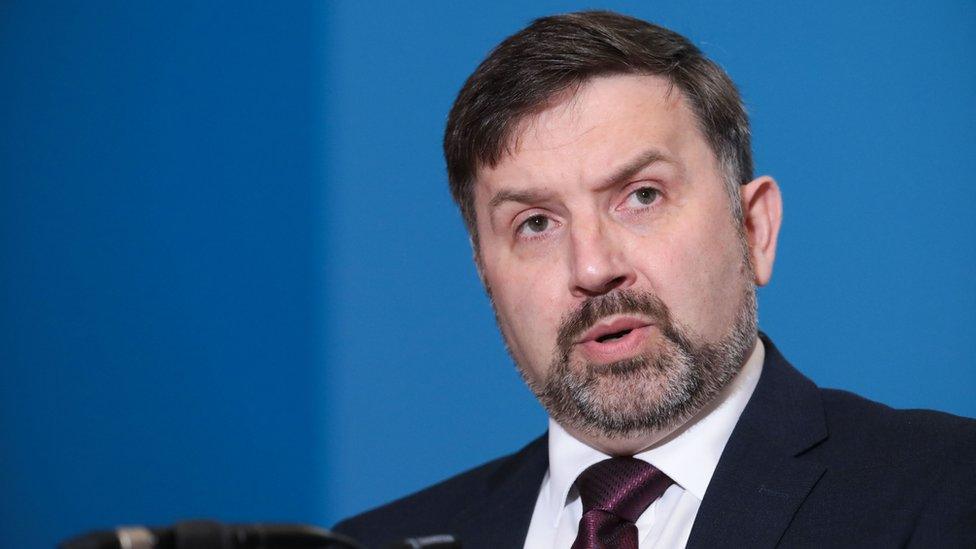
Health Minister Robin Swann said imposing restrictions on a postcode basis was "the right thing to do"
He added that anyone living in the affected areas should be "extremely careful in all aspects of their life".
"Reflecting that requirement, visits to care homes and hospitals in the protected areas are being significantly curtailed," he said.
The Department of Health said it would take about two weeks for the impact of the restrictions on transmission of the virus to become apparent.
Mr Swann said the measures will be retained "only as long as they are deemed necessary and proportionate".
The health minister also said imposing the restrictions "at pace" on a postcode basis was "the right thing to do", given the urgency of the public health situation.
The new rules are expected to last for at least two weeks, and will be regularly reviewed by the executive.
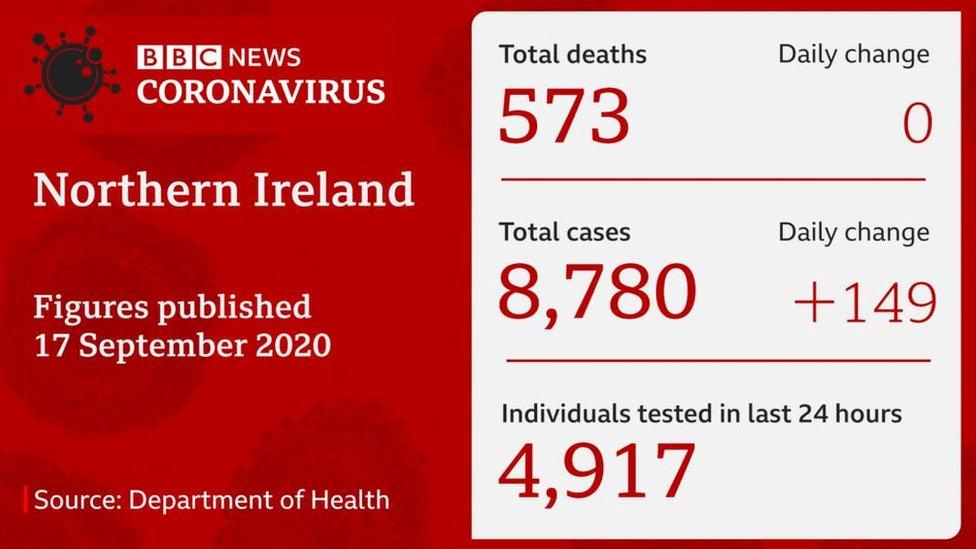
The latest figures show 149 new confirmed positive cases of the virus in the past 24 hours
On Thursday, the Department of Health in Northern Ireland reported no new coronavirus-linked deaths.
That means the death toll from the virus in Northern Ireland remains at 573.
The latest figures on the department's dashboard shows 149 new confirmed positive cases of the virus in the past 24 hours, bringing that total to 8,780.
The department's daily figures are mostly comprised of hospital deaths and where a patient had previously tested positive for the virus.
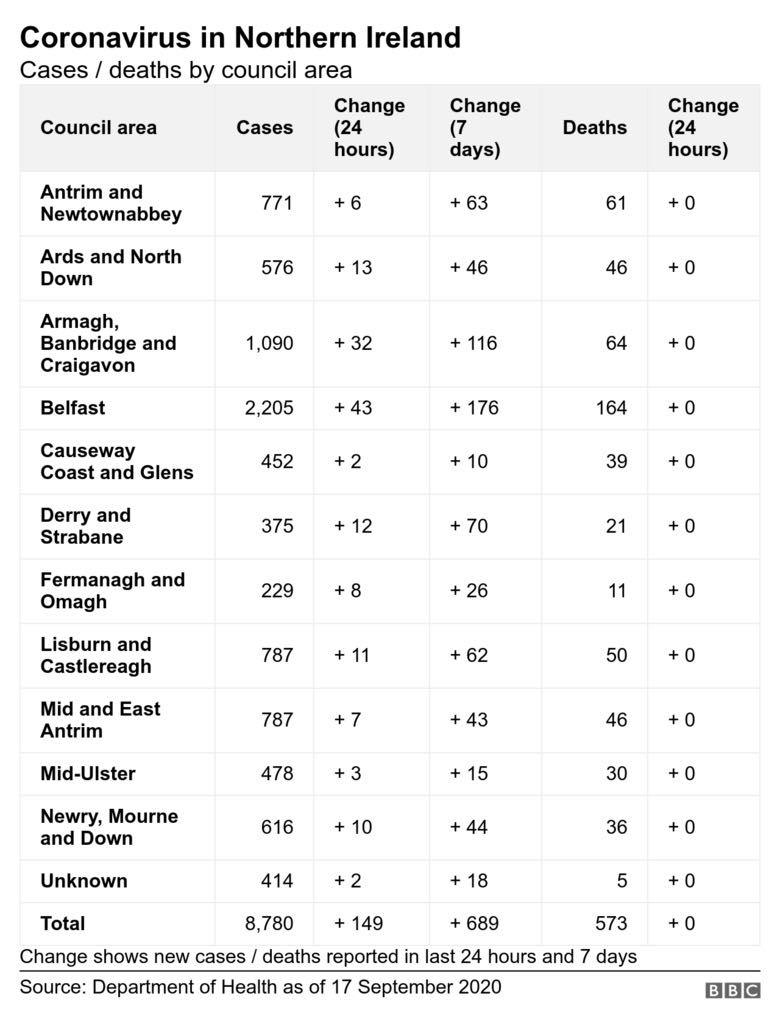
Belfast council area has seen the biggest increase in cases in the past 24 hours.
The Department of Health says the current R number - or reproduction rate - of coronavirus in Northern Ireland is estimated to be about 1.2.
The R value is the number of people who, on average, will be infected by a single person with coronavirus.
Allow X content?
This article contains content provided by X. We ask for your permission before anything is loaded, as they may be using cookies and other technologies. You may want to read X’s cookie policy, external and privacy policy, external before accepting. To view this content choose ‘accept and continue’.

NI's chief scientific adviser Prof Ian Young said that the 14-day cases per 100,000 remains higher than the rest of the UK and the Republic, but testing is also higher in Northern Ireland.
However, he added that it was "obvious" there is an increase in Covid-19 across Northern Ireland.
The Department of Health has also confirmed that anyone travelling into Northern Ireland after 04:00 BST on Saturday from Guadaloupe and Slovenia will be required to self-isolate for 14 days.
Singapore and Thailand will be added to the exempted list.
- Published29 July 2021

- Published8 September 2020
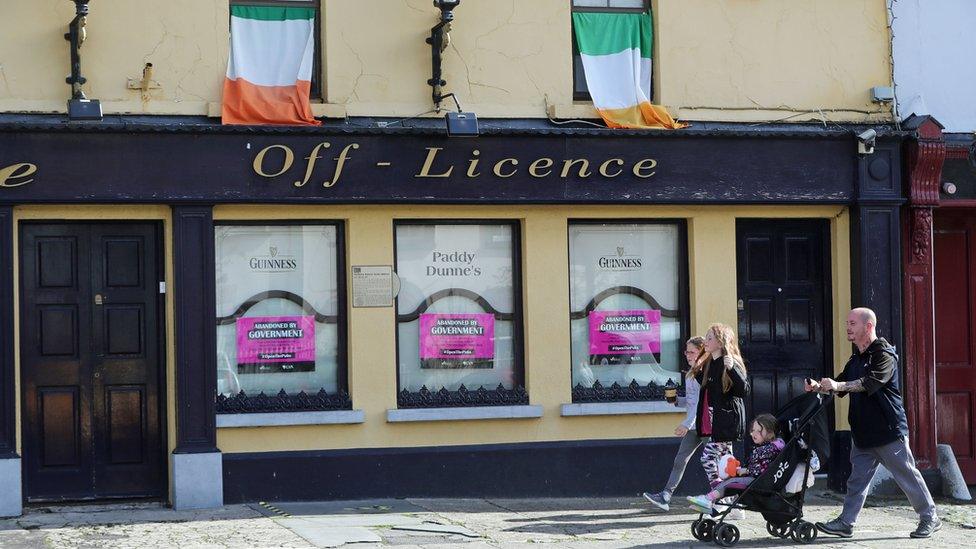
- Published7 September 2020
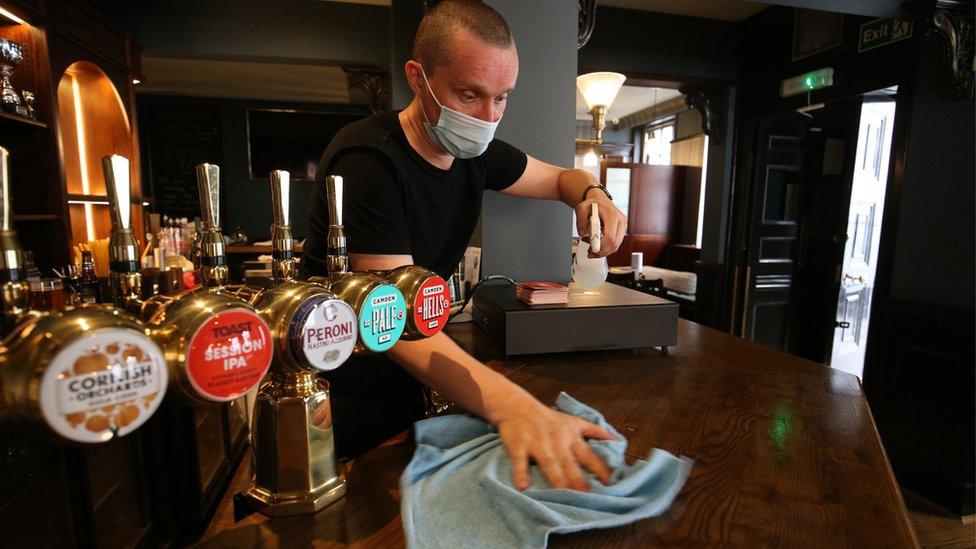
- Published16 September 2020
